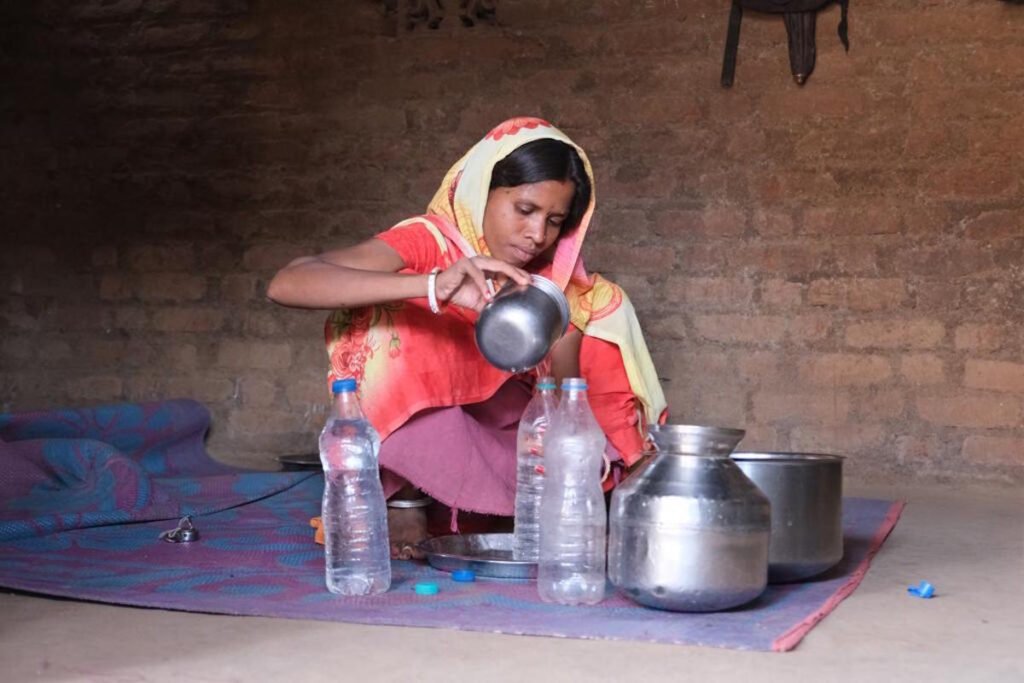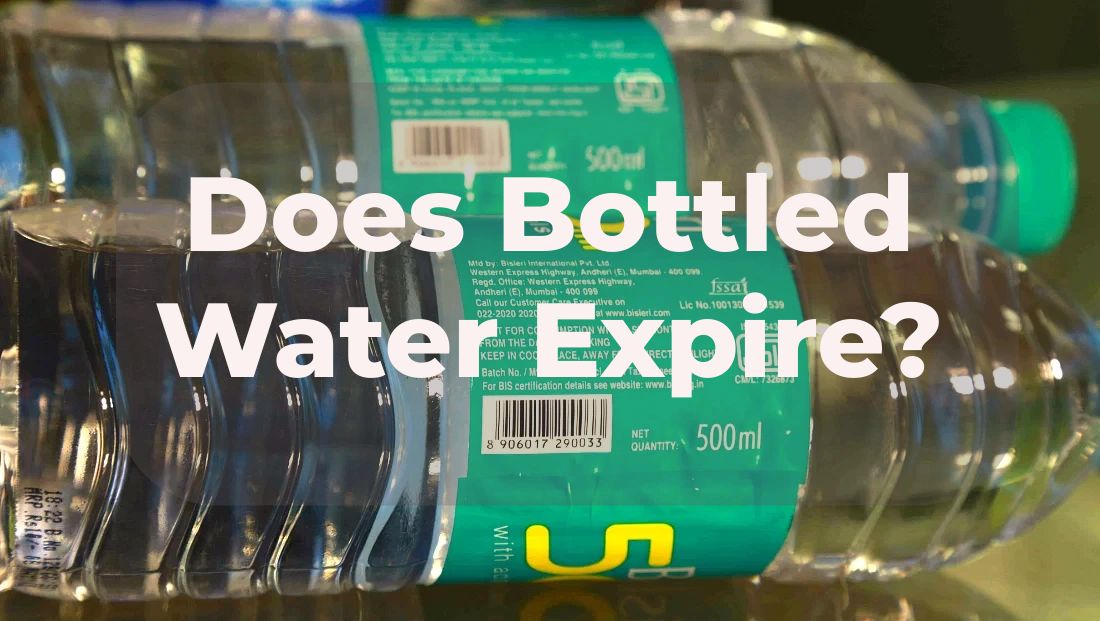Have you ever glanced at the bottom of a bottled water container and noticed an expiration date? Have you ever thought about expired water? It might leave you wondering, does water really expire?
However this article will delve into the truth behind the expiration dates stamped on bottled water containers and what it means for your drinking water. Also you will be able to know why we should not drink water in those bottles.
The Real Facts About The Bottled Water
I’ve seen that people are using the water bottles even after the expiration date with the thought that no change of taste of water by using and so much affordable and also using to contain water and drinking water from the bottle.

Especially in Indian villages most people are consuming bottled water on occasions/ ceremonies and bringing those bottles in home for future reuse to consume water and drink water. Even never checked the expiration date and also the bottles prepared by some local brands, so sometimes there is no expiration date as well. And they used until the bottle got damaged physically. I just tried to pull up the real fact happening in India about reuse of bottled water. Also there is a misconception that water bottles means mineral water must be there in the bottle and the expiration date is about the water inside the bottle.
Understanding Bottled Water Expiration
Bottled water, unlike other perishable items, does not spoil in the traditional sense. However, it’s important to understand that bottled water can still degrade over time. The expiration date on bottled water is more about the quality and taste rather than safety. The quality of water can change due to environmental factors, exposure to light, and the type of packaging used.
Do Bottles of Water Really Expire?
The notion of water having an expiration date may seem perplexing. In reality, the U.S. Food and Drug Administration (FDA) requires that bottled water manufacturers put an expiration date on their products. Also the Food Safety and Standards Authority of India (FSSAI) regulates the quality and safety of food and beverages, including bottled water. The plastic bottles used for packaging can impact the taste of water over time, leading to manufacturers suggesting a use-by date. However, water itself doesn’t expire in the same way that food does. Water never goes bad. The expiration date is about the bottle, not the water. This is mainly to ensure freshness and quality rather than safety concerns.
Signs of Expired Bottled Water
While bottled water doesn’t necessarily “expire,” it can become less palatable over time. Signs that bottled water has degraded include a noticeable change in taste or odor. If the bottle is made from a material that leaches chemicals, there can be safety concerns over time.
Storage and Shelf Life
To maintain the best quality of bottled water, it’s essential to store it properly. Keep bottled water away from direct sunlight and high temperatures. Preferably, store it in a cool, dull spot. This will help preserve the water’s freshness and taste.
Environmental Impact
The disposal of expired bottled water can contribute to environmental pollution. Plastic bottles take hundreds of years to decompose, leading to significant waste accumulation. Choosing reusable water bottles or opting for water filtration systems can help reduce the environmental impact.
Factors to consider when consuming expired water
While regulatory standards provide a guideline for the safety of bottled water, there are additional factors to consider when deciding whether to consume expired water. It’s essential to assess the storage conditions of the water, such as exposure to sunlight, heat, or contaminants. Additionally, check for any changes in the color, odor, or taste of the water, as these could indicate spoilage. Understanding these factors can help determine if the expired water is still safe for consumption. Remember, prioritizing hygiene practices and proper storage can also contribute to maintaining the quality of bottled water beyond its expiration date. Stay vigilant and prioritize your health when consuming expired water.
Recommendations for ensuring water safety
Recommendations for ensuring water safety
1. Purchase bottled water with a reasonable shelf life to avoid consuming expired water.
2. Store bottled water in a cool, dark place away from direct sunlight and heat sources.
3. Regularly inspect bottled water for any signs of discoloration, strange odors, or unusual tastes before consumption.
4. Consider investing in water purifiers or filters for long-term water safety.
5. Stay informed about local water quality standards and regulations to make informed decisions when purchasing bottled water.
6. When in doubt, it’s always safer to discard expired water and opt for a fresh bottle to prioritize your health and well-being.
Practical Tips
To make the most of your bottled water supply, use older bottles first and rotate your stock regularly. Additionally, consider recycling empty bottles rather than discarding them in landfills. Best practice is to avoid low quality plastic bottles as those are not BPA free.
Debunking Myths about Bottled Water
There are several misconceptions about bottled water and its expiration. Contrary to popular belief, consuming slightly outdated bottled water is unlikely to cause harm. The expiration date mainly reflects changes in taste and quality rather than safety concerns.
Conclusion: Staying informed and safe with expiration dates
In conclusion, bottled water does not technically expire in the same way perishable foods do. However, it’s crucial to pay attention to the expiration date for optimal taste and quality and for ensuring your health and safety. By storing bottled water properly and being mindful of recycling, you can enjoy fresh-tasting water while minimizing environmental impact. By following the recommendations mentioned earlier, such as purchasing bottled water with a reasonable shelf life, storing it properly, and investing in water purifiers, you can effectively safeguard yourself from consuming expired or contaminated water.
Remember, when in doubt, it’s smarter to decide in favor of mindfulness and dispose of lapsed water. Prioritizing water safety through informed decision-making is key to maintaining good health and well-being. Stay informed, stay safe!
FAQs
What happens if I drink expired bottled water?
Drinking slightly expired bottled water is generally safe but may taste different due to changes in the water’s composition. And drinking for once or twice might be safe but on a regular basis that can be most harmful.
Can I use expired bottled water for other purposes?
Expired bottled water can still be used for non-consumable purposes like watering plants or cleaning or water bottle crafts. But make sure you are not reusing for consuming drinks or waters or foods.
Is it safe to drink old bottled water?
While generally safe within the date of expiration, the taste and quality may degrade over time. But it’s good to avoid any direct sunlights or hits. Doctors always suggest staying away from bottled water if that was in the direct sunlight and also keeps children away from drinking that bottled water.
How long can you keep bottled water before it goes bad?
Bottled water can be stored for the time up to the expiration date but you might have to avoid it if you are experiencing noticeable changes.
Can you boil expired bottled water to make it safe?
Boiling expired bottled water can kill bacteria but won’t restore its original freshness or taste. So use water in such a mentioned way to drink only if you’re in a critical situation.

